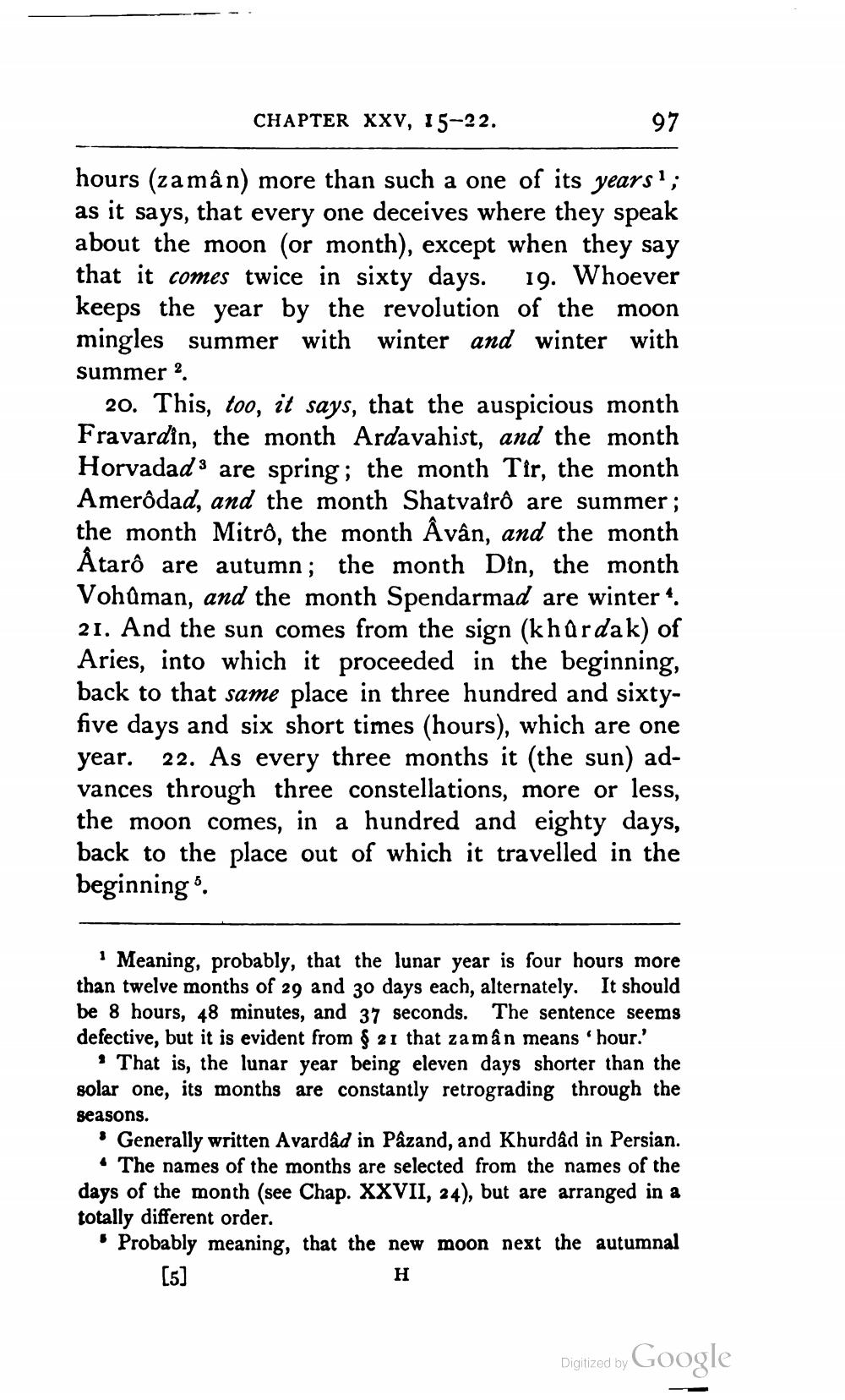________________
CHAPTER XXV, 15–22.
97
hours (za mân) more than such a one of its years 1 ; as it says, that every one deceives where they speak about the moon (or month), except when they say that it comes twice in sixty days. 19. Whoever keeps the year by the revolution of the moon mingles summer with winter and winter with summer 2
20. This, too, it says, that the auspicious month Fravardin, the month Ardavahist, and the month Horvadads are spring; the month Tir, the month Amerôdad, and the month Shatvairô are summer; the month Mitrô, the month Âvân, and the month Åtarô are autumn; the month Din, the month Vohůman, and the month Spendarmad are winter 4. 21. And the sun comes from the sign (k hûrdak) of Aries, into which it proceeded in the beginning, back to that same place in three hundred and sixtyfive days and six short times (hours), which are one year. 22. As every three months it (the sun) advances through three constellations, more or less, the moon comes, in a hundred and eighty days, back to the place out of which it travelled in the beginning
* Meaning, probably, that the lunar year is four hours more than twelve months of 29 and 30 days each, alternately. It should be 8 hours, 48 minutes, and 37 seconds. The sentence seems defective, but it is evident from $ 21 that zaman means 'hour.'
That is, the lunar year being eleven days shorter than the solar one, its months are constantly retrograding through the seasons.
. Generally written Avardad in Pâzand, and Khurdâd in Persian.
• The names of the months are selected from the names of the days of the month (see Chap. XXVII, 24), but are arranged in a totally different order.
• Probably meaning, that the new moon next the autumnal
[5]
H
Digitized by
Digitized by Google




